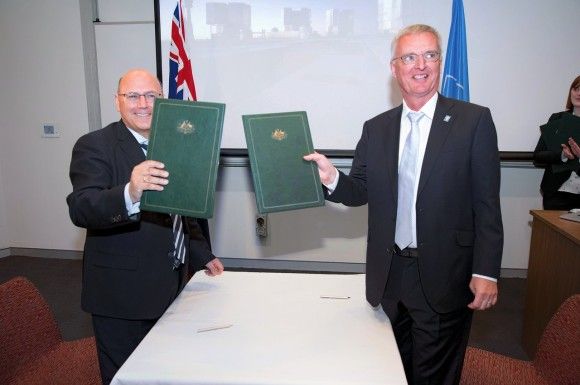Legislation
Offset in the Ministry of National Defence
Lately I had a chance to explain, how complicated a new offset act for the potential foreign suppliers is. After my short lecture everyone was asking the same question: how the practice will look like then and if the foreign suppliers’ position is worse now?
Unfortunately there are no clear answers. The Ministry of National Defence hasn’t worked the offset practice out yet. The article nr 6 of the act introduces considerable limitations regarding military people and civilians negotiating and executing offset contracts on behalf of the Ministry. I haven’t seen such ponderable restrictions in any act before. Moreover, in my opinion, the above mentioned bans include the persons connected with the Ministry, for instance the members of the supervisory boards of the Polish Military Production and Renovation Factories (Wojskowych Przedsiębiorstw Produkcyjno-Remontowych), as well as individuals connected in different ways with offset contracts of “the old type”. These limitations can really hamper recruiting specialists having any idea of offset for the Ministry.
The article nr 20 of the act states that the guarantee of the contract execution can be: submission to the notary deed of execution (so called 777), bank guarantee, and blank bill together with the bill declaration. It is a fact, that the legislator used the term „especially”, and thereby allowed different forms of guarantees. Will the Ministry be flexible? We shall see. So far the corporate guarantee was used – guaranty issued on behalf of the corporation saying, that the contract will be executed in a suitable way and the system will be working properly. The bank guarantee or a blank bill is a big burden for the foreign supplier and may influence the supply price.
Furthermore, in the article nr 23 the clause talking about the responsibility of the foreign supplier for the inappropriate commitment execution has been changed. Now, by virtue of law, it will be the full value of the inappropriate completed task, while the previous act was saying that the % of the agreed fine would be determined in the offset contract.
I have a feeling, that a new act has been prepared in the “soldier way” – stiff procedures, no flexibility. Only time will show, how it will work, how the Ministry will be prepared to the offset negotiations – I hope it will be really well prepared. Yet I am truly frightened. Frankly speaking I feel sorry for the person, who will manage the offset on behalf of the Ministry. Because the task will be very difficult, unless the Ministry is not going to use offset at all, convincing it is a very hard and difficult task.
Regarding the negative European Commission’s standpoint as to the offset, included, inter alia, in the Communicate COM (2013) 5, introducing so called „Polonization” – requirement of producing weapons in Poland – would be a good solution. In my opinion the easiest way would be producing components and agents indispensable for weapons usage, for instance thru including a special clause in the tender – a clause saying, that the equipment should be renovated not farther than 200 – 300 km from the potential combat field. Polonization is a term not defined in the act and therefore it will be a bit difficult for the European Commission to fight with it. It is also a very good way of supporting the national military industry, yet only on condition, that a person using it knows how to use it.
I believe that the above European Commission’s standpoint is wrong, as it does not follow the merits. On the defense market, regarding the most of the assortment, it is known, which of the suppliers are able to meet the order requirements (i.e. they produce jet fighters). In many cases only the foreign companies can be suppliers and in these cases – requiring offset, no one can say, that the national firms are privileged.
Summarizing – there are ways of supporting the Polish military industry, yet there should be the will to use them. And how it will be? Time will show.
Jarosław Kruk
